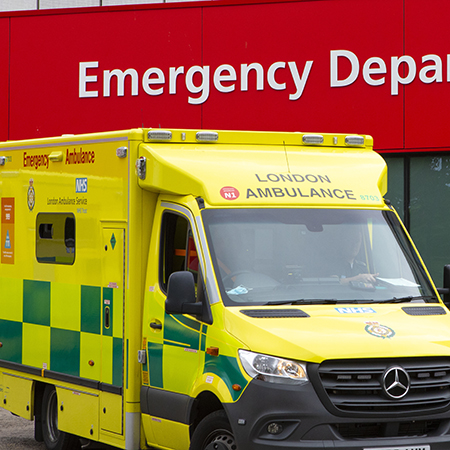The Government says that patients, clinicians and the public have welcomed its proposals for a new set of indicators for urgent care. The proposals will mean scrapping the four-hour target, which hasn’t been met for the last five years.
The updated standards propose a bundle of 10 measures that will take account of changes in the way that urgent and emergency care is delivered, such as the roll-out of Same Day Emergency Care and strengthening of NHS 111. Under the new proposals, hospitals will be expected to see and assess patients within 15 minutes.
The 10 measures are:
• Response times for ambulances
• Reducing avoidable trips (conveyance rates) to Emergency Departments by 999 ambulances
• Proportion of contacts via NHS 111 that receive clinical input
• Percentage of ambulance handovers within 15 minutes
• Time to initial assessment percentage within 15 minutes
• Average (mean) time in department for non-admitted patients
• Average (mean) time in department for admitted patients
• Clinically ready to proceed
• Percentage of patients spending more than 12 hours in A&E
• Critical time standards.
The specific proposals set out in the new standards were endorsed by 67% of respondents in an NHS consultation, and opposed by just 13%.
Rachel Power, Chief Executive of the Patients Association, says: “We welcome the proposed new indicators for urgent and emergency care. Patients told us clearly that they support the new bundle of measures, and that they perceive the existing four-hour target as bringing downsides as well as benefits. We hope to see the new indicators driving improvements for patients who need urgent and emergency care when they are introduced.”
However, Nuffield Trust’s John Appleby told The Telegraph that before we change the target, we should ask why the existing target is not being met. He also told The Sun that the move could mean just moving the goalposts and it’s not clear what the level of the new targets will be.
The proposals have been broadly welcomed by both NHS Providers and the NHS Confederation. Miriam Deakin, Director of Policy and Strategy at NHS Providers says they support a broad set of measures that captures more of the patient journey and adds that some of the measures are designed to capture system-wide support for emergency care and will deliver real improvements for patients.
Danny Mortimer, Chief Executive of the NHS Confederation says they look forward to working with NHS England to understand what additional support will be made available to the health sector in order to implement the new indicators, confirming there is widespread agreement among members on the need for significant change to the existing standards.
However, both caution that recognition should also be made of the challenges the NHS still faces around restoring services and addressing the backlog caused whilst health services responded to COVID-19, as well as proper funding for services and investment in the workforce as well as social care.










